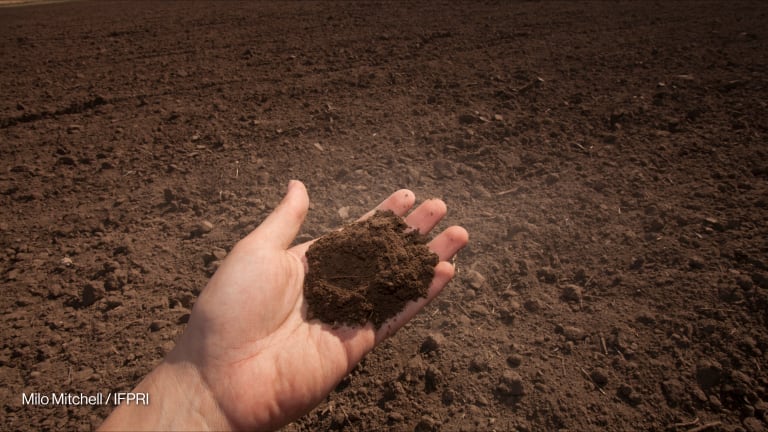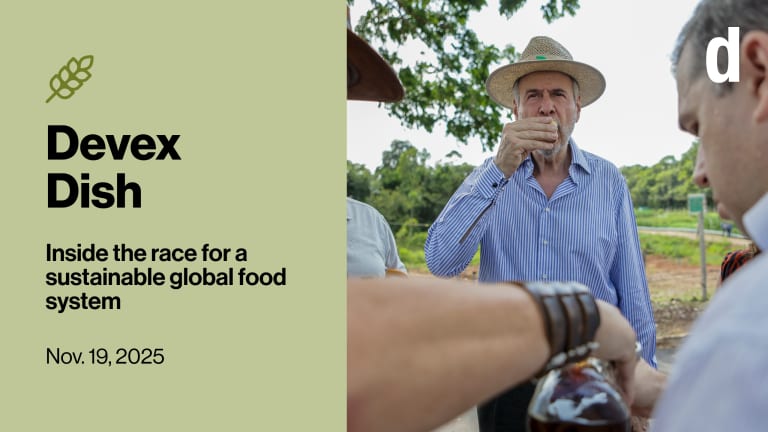The quantity and quality of the food we eat depend on healthy soils, but soil management has so far failed to become a top priority in the global development agenda — a trend the U.N. Food and Agriculture Organization hopes to change in 2015, declared the International Year of Soils.
Lack of interest in the issue by donors and implementers alike has long worried soil advocates. The Montpellier Panel, a group of African and European experts focused on agricultural development and food security in sub-Saharan Africa, noted in a December 2014 report how “undervalued, soils have become politically and physically neglected, triggering land degradation” across the whole region. Furthermore, independent researchers suggest that in Africa, 65 percent of arable land, 30 percent of grazing land and 20 percent of forests are now damaged.
With donors not paying considerable attention to the issue, financial statements are often unclear, with the only available data, the Organization for Economic Cooperation and Development's desertification marker, showing that from 2002 to 2012, less than 1 percent of development aid had put towards fighting soil degradation as a priority.








